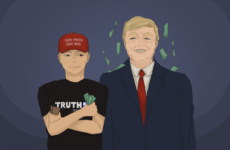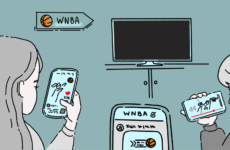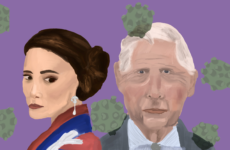
By Jai Midha ’27
In the dramatic 1942 case of Chaplinsky v. New Hampshire, the U.S. Supreme Court ruled that fighting words are not protected by the First Amendment. Yet, even after this monumental ruling, people still turn to the First Amendment for protection and justification for hateful remarks. Naturally, one question comes to mind: where do we draw the line between free and hateful speech? One can easily argue that criticizing a celebrity or music album can be considered malicious, but how should we define hate speech to ensure that we understand when free speech becomes hate speech?
One way to limit this broad term is by defining it as speech that intends to humiliate, vilify, or incite hatred against a group of people. Hate speech is often fueled by discrimination against traits such as, but not limited to, race, religion, or sexual orientation. The critical identifier of hate speech is the intention to incite violence among groups of people, which is not protected under the First Amendment.
Some also argue that addressing hate speech limits free speech, which, in turn, severs the promise of the First Amendment. However, as United Nations Secretary-General António Guterres said, “Addressing hate speech does not mean limiting or prohibiting freedom of speech. It means keeping hate speech from escalating into something more dangerous, particularly incitement to discrimination, hostility, and violence, which is prohibited under international law.” This means that, most frequently, the root of violence, discrimination, and oppression is rooted in hate speech. Thus, why should we allow it or continue to pretend that it is protected by the First Amendment?
Yehuda Berg, a teacher of Kabbalah, said, “Words are singularly the most powerful force available to humanity.” For instance, the Brookings Institution noted that anti-Muslim discourse in the United States was prompted by the remarks of both Former President Trump P’00 and his followers on social media during his 2016 presidential campaign. The same article refers to studies that demonstrated negative emotions amongst listeners of hate speech towards target communities, as well as increased support for political violence amongst audiences of hate speech. As such, hate speech would invite and normalize violent sentiment, which is a risk that democratic states with an emphasis on civil discourse must not permit.
But how can words be magnified by the identity and reach of the speaker? Are Kanye West’’s insensitive remarks equivalent to a rude comment found in a random Reddit thread? In my opinion, it doesn’t matter who’s saying hateful words; what matters is what the potential reach of hate speech is.
Even if hate speech were to be protected by First Amendment rights, it is not right to pursue the ideologies that come with it. We don’t see the lives and families harmed by our words and social media posts. As a student who is actively on the internet, like many teenagers are today, I’ve been able to identify many instances where, even if it’s implicit, people share hateful words thinking they are protected by the First Amendment. However, it is our job to ignore and report these types of posts to ensure we continue to uphold our responsibility to inclusivity and kindness. We all have the privilege of expressing ourselves, usually with minimal consequence; let us make sure that we use this privilege for good, not to spread hate or misinformation.




